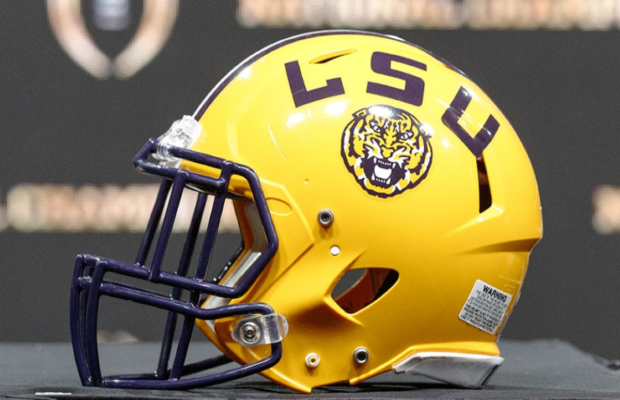LSU confirms at least 30 football players are in quarantine due to COVID-19

According to a report from Sport’s Illustrated’s Ross Dellenger, at least 30 LSU football players are in quarantine because they tested positive for COVID-19 or were found to have had contact with those who tested positive.
Shelly Mullenix, LSU’s senior associate athletic trainer confirmed the news. However, she did not specify which players have been isolated. No LSU athlete or staff member has required hospitalization and very few have experienced effects beyond mild symptoms. At least part of the outbreak can be traced to Tigerland, an area filled with bars and nightclubs in Baton Rouge.
The good news is that Mullenix is confident that LSU’s facility safety protocols have worked. None of the positive cases have been traced back to workouts within the facility but only contracted in the community. LSU is encouraging all players to remain on campus at the facilities as much as possible and wear a mask if they decide to go out.
“It’s not surprising we’re seeing the rise right now,” she told SI. “It’s a pandemic. We should not be shocked. The story is that it’s exactly what we said it would be. We were prepared from the get-go for a lot of virus. The good news is we’re seeing subtle virus illness.”
Several other major college football programs are dealing with coronavirus.
Clemson had 28 positive tests come back among players and staff on Friday, June 19 and Texas had as many as 13 recently.
Cases have also been reported at Alabama, Houston, SMU, and Florida State.
With players all over the country reporting to their campuses for voluntary workouts throughout the last month, athletic directors and coaches are wary that the season could be shortened or canceled if COVID-19 numbers do not improve substantially by late summer.
In a conference call earlier this month, NCAA president Mark Emmert acknowledged the possibility of a shortened college football season. Earlier this week, Dr. Anthony Fauci said that football is a “perfect set up” for spreading the virus as he explained to CNN:
“Sweat does not do it. This is a respiratory virus, so it’s going to be spread by shedding virus. The problem with virus shedding is that if I have it in my nasal pharynx, and it sheds and I wipe my hand against my nose—now it’s on my hand. You see, then I touch my chest or my thigh, then it’s on my chest or my thigh for at least a few hours. Sweat as such won’t transmit it. But if people are in such close contact as football players are on every single play, then that’s the perfect set up for spreading. I would think that if there is an infected football player on the field—a middle linebacker, a tackle, whoever it is it—as soon as they hit the next guy, the chances are that they will be shedding virus all over that person.
“If you really want to be in a situation where you want to be absolutely certain, you’d test all the players before the game. And you say, Those who are infected: Sorry, you’re sidelined. Those who are free: Get in there and play.”